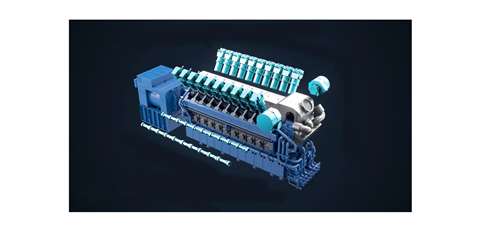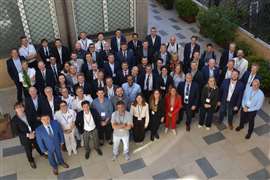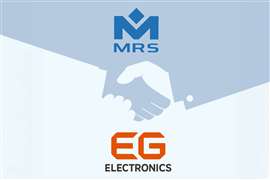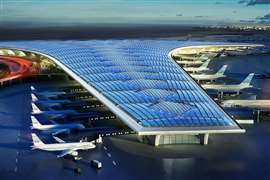Bergen seeks to ‘revitalize’ ICE technology
04 April 2022
Goal of switching seamlessly from ammonia to other fuels
Bergen Engines announced a €4 million research project funded jointly with the Norwegian government to develop the use of ammonia as an alternative fuel for ship’s engines.
The Ammonia Zero Emissions (AMAZE) project is a three-year technology study led by Bergen Engines in collaboration with Equinor, SINTEF Energy Research, SINTEF Ocean, Norwegian University of Science and Technology (NTNU), and RISE Fire Research. The partners share the common goal to support the maritime industry in reaching climate neutrality, and will contribute with research and development in their respective areas of expertise. The €4 million project is being funded jointly between Bergen Engines, the Research Council of Norway and Equinor.
The development goal is a multi-fuel engine able to switch seamlessly from ammonia to diesel or other low-carbon fuels such as biofuels. Advanced fuel injection and combustion technology is expected to ensure high efficiency and close to zero emissions.
According to Bergen Engines, the AMAZE project is a response to the increasingly stringent emission requirements for the shipping industry. Fossil fuels have the highest energy density of all known fuels and are therefore also most used for shipping. Carbon-free hydrogen has the lowest energy density per unit volume and is challenging to use for deep-sea shipping as it is very space-intensive. Ammonia is a derivative of hydrogen. In liquid form, ammonia is a promising carbon-free fuel for deep-sea shipping, as it has a higher calorific value than hydrogen per volume basis, and it is therefore easier to store and handle.
 The Ammonia Zero Emission (AMAZE) project was launched by Bergen Engines to develop technology for a fuel-flexible internal combustion engine that has carbon-free ammonia as the primary fuel. (Image: Bergen Engines)
The Ammonia Zero Emission (AMAZE) project was launched by Bergen Engines to develop technology for a fuel-flexible internal combustion engine that has carbon-free ammonia as the primary fuel. (Image: Bergen Engines)
“The AMAZE technology will allow shipowners to meet emission reduction targets in a cost-effective manner,” said Therese Aalhus, head of Engineering in Bergen Engines. “Following the study, we aim to eventually develop a retrofit package that is economically viable and easy to install to ensure the continued use of existing equipment and mitigate the risk of stranded assets. Retrofitting opens the possibility to remove millions of tonnes of potential CO2 emissions from the existing fleet by switching to carbon-free fuels enabled by the AMAZE project.”
Engine lab-testing and experiments are done in close collaboration with NTNU and SINTEF, at their premises in Trondheim.
“The AMAZE project aims to revitalize the conventional Bergen diesel engine, turning it into a high-pressure multi-fuel unit,” Aalhus said. “The technology is expected to represent a breakthrough within ammonia operated internal combustion engines (ICE), as the engine will burn ammonia with compression ignition and direct high-pressure fuel injection. It will limit the amount of unburnt fuel being released into the atmosphere while preserving high thermal efficiency and ensuring fuel flexibility.”
Since carbon-intensive diesel is used to start the combustion with pilot injection, the project will investigate injection timings and strategies to minimize it, keeping the overall greenhouse gas emissions to a minimum.
Combustion of ammonia can result in nitrous oxide formation, which is a highly potent greenhouse gas. AMAZE will aim to mitigate such emissions directly in the combustion process.
POWER SOURCING GUIDE
The trusted reference and buyer’s guide for 83 years
The original “desktop search engine,” guiding nearly 10,000 users in more than 90 countries it is the primary reference for specifications and details on all the components that go into engine systems.
Visit Now
STAY CONNECTED




Receive the information you need when you need it through our world-leading magazines, newsletters and daily briefings.
CONNECT WITH THE TEAM













